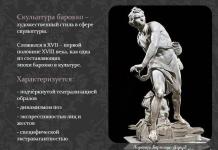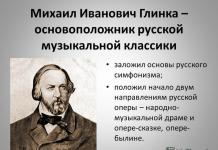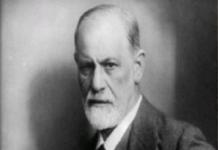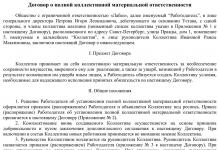In this chapter Apostle I. Considers the question of the spiritual gifts so abundantly bestowed upon the Corinthian church. He speaks of their origin, that they are from God; about their diversity and purpose, that they are all intended for the same general purpose - for the spread of Christianity and the building of the church, art. 1-11.
II. He illustrates this by the analogy of the human body, in which all the members are interconnected and serve each other, and each has its place and purpose, v. 12-26.
III. He tells us that the church is the body of Christ, and that its members are endowed with various gifts for the good of the whole body, and of each member separately, v. 27-30. And turning to the Corinthians,
IV. He ends with a call to seek that which surpasses all gifts.
Verses 1-11. The apostle begins to consider the spiritual gifts, which the Corinthian church abounded in, but misused. This chapter details what these gifts were, namely, extraordinary powers and abilities granted to ministers and ordinary Christians in the early centuries to persuade unbelievers and spread the gospel. The gifts and various types of grace, HaPiatsata and Xdpiq, are very different from each other. But both are given by God in an independent way. Grace is given for the salvation of those who receive it. Gifts are sent down for the benefit and salvation of others. There may be many gifts where there is not an ounce of grace, and the person who possesses them may find himself completely deprived of God's favor. The Corinthian church was rich in gifts, but there were many shameful phenomena in it. Regarding these spiritual gifts, that is, the supernatural abilities they received from the Spirit,
I. The apostle says that he would not leave them ignorant of the origin and use of the gifts. They come from God and should be used for Him. If the Corinthians were ignorant of one gift or another, it could lead to abuse. Note: Correct information is extremely important for any practical activity. Gifted people can do a lot of harm, either because they do not know or because they do not consider the nature of the gift they have and how it should be used.
II. He reminds them of the miserable former condition from which they were delivered: ... when you were heathens, you went to dumb idols - as if you were led, v. 2. When they were still pagans, they could not have any claim to being spiritual people or to possessing spiritual gifts. Being led by the spirit of paganism, they could not experience the influence of the Holy Spirit. If they had understood their previous condition well, they could not have failed to know that all true spiritual gifts come from God.
1. Their former condition: they were heathens. They were not from the people chosen by God, but from the peoples, in a sense, left by Him. Such were the majority of the Corinthians before their conversion to Christianity. What a change this brought about!
2. What kind of leadership were they under then: ...they went to silent idols - as if they were leading you. They indulged in the grossest forms of idolatry, worshiping even wood and stone, under the influence of both their own empty imagination and the deception of their priests, who took advantage of their ignorance, for such were the customs of the people, despite all the teachings of their philosophers. Even those who despised the crude concepts of the mob, nevertheless adhered to them in practice. Oh, the gloomy picture of paganism!
III. He explains to them how they can discern the gifts that come from the Spirit of God, truly spiritual gifts: ...no one speaking by the Spirit of God will pronounce anathema against Jesus... Both Jews and Gentiles did this: they reviled Him as a deceiver , they hated His name, they abhorred it. And at the same time, many of the Jews, spellcasters and sorcerers, claimed to work miracles by the power of the Spirit of God, and even many pagans claimed to be inspired from above. The Apostle affirms that no one who dishonors and discredits Christ can act under the influence or power of the Holy Spirit, for He bears witness to Christ through prophecies, miracles, through His resurrection from the dead, through the success of His teaching among people and the influence of this teaching on them, and He cannot contradict Himself by cursing Him. On the other hand, no one can call Jesus Lord (that is, live by faith and perform miracles to prove it) except by the Holy Spirit. It is impossible to confess this truth before people, to be faithful to it until death and to live under its influence without the sanctifying influence of the Holy Spirit. No one can call Christ Lord, render trusting submission to Him and admit dependence on Him, unless this faith is produced in him by the Holy Spirit. The essence of what the apostle here asserts and proves boils down to the following: whatever the claims of the enemies of Christianity to inspiration from above and miracles, they could not come from the Spirit of God; no person can believe in his heart and prove through a miracle that Jesus is the Christ, except by the Holy Spirit; so that all the supernatural manifestations and abilities that took place among the Corinthians came from the Spirit of God. He adds that IV. Spiritual gifts, which come from the same Spirit, nevertheless differ from each other. They have one Author and one origin, but are different in themselves, v. 4. There are various gifts, such as revelations, tongues, prophecy, interpretation of tongues, but the Spirit is the same. There are various ministries and ministers who perform them, various institutions and institutions (see, vv. 28-30), but the Lord who appoints them all is one and the same, v. 6. And there are different actions..., or miraculous powers, called here miracles (v. 10), but God is one and the same, working everything in everyone. There are various gifts, ministries and activities, but they all come from one God, one Lord, one Spirit, that is, from the Father, the Son and the Holy Spirit; everything comes from one source. No matter how different they may be in themselves, in this they are one, all from God. Some of them are listed here, Art. 8-10. Different individuals had different gifts, one this way, another another, but all from the same Spirit. To one was given the word of wisdom, that is, as some say, knowledge of the mysteries of the Gospel and the ability to explain them, an accurate understanding of the purpose, essence and doctrines of the Christian faith. Others understand this as profound sayings, like the parables of Solomon. And others understand by the word wisdom the revelations given to the apostles and through the apostles. To another a word of knowledge, by the same Spirit, that is, some say, knowledge of the mysteries (ch. 2:13) hidden in the prophecies, types, and historical narratives of the Old Testament. Others understand the word knowledge as the ability and willingness to give advice and clarification in difficult cases. Others have faith, by the same Spirit, that is, faith in miracles or faith in God’s power and His promise, through which they are able to trust in God in any critical circumstances and continue to follow the path of their duty, confessing the truths of Christ, no matter what difficulties and dangers they encounter on their way. To others are gifts of healing, by the same Spirit, that is, healing the sick either by laying on of hands, or anointing with oil, or simply by the word. Other miracles, that is, actions of power, such as raising the dead, returning sight to the blind, speech to the dumb, hearing to the deaf, restoration of the crippled. To others, prophecy, that is, the ability to predict the future (the most common sense of the word “prophecy”) or the ability to explain the Holy Scriptures by a special gift from the Spirit. See chapter 14:24. To another is the discernment of spirits, the ability to discern between true and false prophets, or to discern the genuineness of a man's call to the ministry, or to discover the secret thoughts of men by the Holy Spirit, as Peter did concerning Ananias, Acts 5:3. Different tongues to another, that is, the ability to speak in other tongues by inspiration from above. To another, the interpretation of languages, that is, the ability to translate from foreign languages quickly and correctly into one’s own language. The ministers and churches of the early apostolic period were endowed with such a variety of spiritual gifts.
V. For what purpose these gifts were intended: But to every one is given the manifestation of the Spirit for his benefit, v. 7. Through the use of gifts the Holy Spirit manifested Himself; His influence and participation were revealed in them. They were distributed not for the honor and advantage of those who received them, but for the benefit of the church, for the edification of the body of Christ, and for the success of the spread of the Gospel.
Note, Whatever gifts God gives to man, He gives them to him that he may use them to his advantage, whether they be natural or spiritual gifts. No man gets them for himself. The gift is entrusted to him to use it, and the more he benefits others, the more abundantly they will bring him his reward at the end, Phil. 4:17. Spiritual gifts are given not for display, but for service, not for boasting and gratification of vanity, but for edification, not for the exaltation of those who have them, but for the edification of others.
VI. To what extent and in what proportion are the gifts distributed: Yet all this is done by one and the same Spirit, distributing to each one individually, as He pleases. - According to the sovereign will of the Giver. What could be freer than a gift? And isn’t the Spirit of God free to do whatever He wants with what belongs to Him? Can’t He give to whomever He wants, and to the extent that He wants? To one is one gift, to another another, to one more, to another less, as He sees fit? Isn't He the best judge of how to serve His own purposes and how to distribute His own gifts? Not as people want, and not as they think is best, but as He pleases.
Verses 12-26. The apostle now proves the truth which he affirmed above, and reminds the gifted among the Corinthians of their duty, by comparing the church of Christ to the human body.
I. He tells us that one body may have many members, and that the many members of the same body are yet one body (v. 12): For as the body is one, and has many members, and all the members of one body, although there are many of them, they form one body, so does Christ, that is, the mystical Christ, as theologians usually say. Christ and His Church are one body, as head and members, and this body is composed of many parts, or members, and yet one body, for all the members were baptized into one body... and all were given the same Spirit, v. . 13. Jew and Gentile, slave and free, are all on the same level in this respect, all have been baptized into the same body, and all have become partakers of the same Spirit. Christians become members of this body through baptism: they are baptized into one body. This external ritual is God's institution, marking the new birth, which is why it is called the bath of regeneration Titus 3:5. But we become members of the body of Christ through the Spirit, thanks to the renewal of the Holy Spirit. It is the work of the Spirit, signified by outward rite, that makes us members. The outward rite is the means established by God for our participation in this greatest blessing, but only the baptism of the Spirit, the inward renewing and indwelling of the Spirit, the participation in the process of sanctification which He constantly carries out, makes us true members of the body of Christ and keeps us in union with Him. All who have the Spirit of Christ, whether Jews or Gentiles, slaves or free, are members of Christ, and none other than these.
II. Each member has its own type, its own place and purpose.
1. The smallest member is a part of the body. A foot and an ear may be less useful than a hand and an eye, but can they say that they do not belong to the body, because one is not a hand and the other is not an eye? (vv. 15, 16). Likewise, each member of the mystical body cannot occupy the same place and perform the same function; so what? Is this why he can refuse to belong to the body? If he is not in the same position and endowed with the same gifts as others, can he say, “I do not belong to Christ?” No, the smallest member of His body is the same member as the noblest, and appears as such in His eyes. All His members are dear to Him.
2. There must be a difference between the members of the body: If the whole body is eyes, then where is the hearing? If everything is hearing, then where is the sense of smell? (v. 17). And if everyone had one member, where would the body be? (v. 19). There are many members, and therefore there must be a difference between them, but the body is one, v. 20. One member of the body is not a body, the body consists of many members, and among these many members there must be a difference in position, shape, purpose, and so on. So it is in the body of Christ: its members must have different functions and therefore different abilities and different positions, some should have one gift, others another. The diversity of the members of the body gives beauty to it. What a monster the body would be if it consisted entirely of an ear, an eye, or a hand!
3. The arrangement and position of the members in the natural body is as it pleased God: But God disposed the members, each one, in the composition of the body, as it pleased him, v. 18. The wisdom of God is clearly seen in the disposition of the members of the body, but it was carried out in accordance with His will; He diversified and arranged them as He pleased. It is the same with the members of the body of Christ: they are placed in such positions and endowed with such gifts as God pleased. What reason do we have for being dissatisfied with ourselves or for envying others? We must do our duty in our place and not grumble within ourselves or quarrel with others because we are not in their place.
4. All members of the body, to one degree or another, are useful and necessary for each other: The eye cannot say to the hand: “I don’t need you”; or also head to feet: “I don’t need you.” On the contrary, the members of the body that seem weakest are much more needed, v. 21, 22. God so arranged and proportioned them that they are all needed for each other and for the whole body as a whole; there is not a single part that is superfluous or unnecessary. Each member serves some good purpose or another: it is useful to its neighboring members and necessary to the welfare of the whole body. There is no member in the body of Christ that cannot and should not be useful to its fellow members, and at some times and in some cases necessary to them. No one should despise or envy another, recognizing that God himself has made distinctions between them in order to preserve their mutual dependence, so that they can value and care for each other. Those who are superior to others in some gift cannot say that they do not need those who are inferior to them in this gift, for they may be superior to them in something else. Moreover, the weakest of the members also have their purpose, and the noblest cannot do without them. The eye needs hands and the head needs legs.
5. Man takes such care of his body that our ugly ones are covered more plausibly, but our good looking ones have no need for it..., v. 24. Those parts of the body that cannot, like others, be exposed to public view, we must cover more carefully with clothing, while the more beautiful ones do not need this. The wisdom of God inspires greater care for the less perfect. This is how members of the body of Christ should treat each other: instead of humiliating or reproaching others for their weaknesses, they should try to cover and hide them, present them in a more attractive form. 6. Divine wisdom arranged everything in such a way that there could be no divisions between the members of one body: So that there would be no division in the body... (v. 25), no discord, disunity, not even the slightest neglect of each other. This should also be avoided in the spiritual body of Christ. There should be no divisions, but all members should be bound by the bonds of brotherly love. Any cooling of love sows the seeds of schism. When indifference and neglect arise in relationships between Christians, division begins. The members of the physical body are designed in such a way that they take care of each other. The same relationship should exist between the members of the body of Christ: they should sympathize with each other. Just as in a natural body the disease of one member affects the whole body and the good condition of one member is reflected in the whole body, so Christians should consider it a joy to themselves when one of its members rejoices, and suffer with the suffering member. Note: Christian sympathy is one of the greatest duties of a Christian. We must be so far from being indifferent to the sufferings of our brothers that we are able to suffer with them, and so far from envying their glory that we can rejoice with them and consider their glory as our own.
Verses 27-31. I. The apostle sums up what has been said, and applies the analogy of the body to the church of Christ, where the following may be observed:
1. The relationship of Christians with Christ and with each other. The Church, that is, the collective body of all Christians of all ages, is the body of Christ. Every Christian is a member of His body, and is united with other Christians as members of the same body (v. 27): And ye are the body of Christ, and separately members. Each is a member of the body, and not the whole body; each is connected with the body as a part of it, and all members are interconnected, dependent on each other and must show care and concern for each other.
Note: Indifference to each other, and even more so contempt, hatred, envy, and strife are completely unnatural for Christians. It is as if members of the same body did not care for each other or quarreled with each other. Using the analogy of the body, the apostle seeks to suppress the proud, boastful, and quarrelsome spirit that prevailed among the Corinthians because of their spiritual gifts.
2. The variety of the offices instituted by Christ, and the gifts or blessings dispensed by him (v. 28): And some God hath appointed in the church, first as apostles... These are the chief ministers, invested with all necessary authority for the founding of churches, and for the full revelation the will of God.
Secondly, prophets, that is, persons endowed with inspiration from above, such as the evangelists.
Thirdly, teachers, that is, laborers in the word and teaching, whether with or without pastoral duties. After this come the miracle workers, endowed with miraculous powers. Then those who had gifts of healing, that is, those who were given the power to heal diseases; the gift of help, that is, compassion for the sick and weak and service to them; the gift of administration, or distribution of charitable funds among church members; the gift of different languages, that is, the ability to speak different languages. Regarding the ministries and gifts listed, we note the following:
(1) Their extraordinary variety. There are so many of them! The good God was generous in bestowing His blessings on the early church; He was not stingy in His gifts and benefits. He provided for them very richly. They lacked nothing, they had everything they needed, and even more.
(2) Notice the order in which these ministries and gifts are listed. They are located according to their rank. The most valuable of them take first place. Apostles, prophets and teachers were appointed in order to teach the people, enlighten them regarding God's mysteries, and promote their spiritual edification. The rest, although they served the great goals of Christianity, did not have such a direct relationship to spiritual service in the strict sense of the word. God evaluates things according to their real value, as we should do; the utility of one or the other is the best criterion of their worth. What is most valuable is what serves the highest purposes. Such was the apostolic ministry in comparison with the ministry of those who had gifts of healing and miraculous powers. The last, most modest place in this list is occupied by different languages. Of all the gifts, this was the least useful and therefore the least significant. The gifts of healing sickness, helping the poor, helping the weak were useful gifts, but what a waste it is to speak in tongues if a person does it only to please himself or to show off to others! This may cause admiration, but it does not edify the listeners at all and does not bring them any benefit. And yet, as can be seen from Chap. 14, the Corinthians were extremely proud of this gift!
Note: The right way to bring down people's pride is to show them the true value of what they are proud of! People tend to be overly proud of things that have no value. It is very useful to show them their error so that they come to sound thinking.
(3) Different distribution of these gifts: not all gifts are given to one person, and not everyone has the same gift. Not all members and ministers hold the same position in the church (vv. 29, 30): Are all apostles? Are all prophets?.. Some are suitable for one service and use, others for another. The Spirit distributes them the way He wants. We should be content if we occupy a lower position and have less gift than others, and should not be haughty over those whom we are superior in position, or humiliate those who are endowed with less gift than ourselves. Each member of the body must maintain its position and try to fulfill its purpose in the best possible way; all should serve one another and promote the welfare of the whole body, without envying, humiliating or neglecting the other members. What a blessing there would be in the Christian church if all the members faithfully performed their duties!
II. As Paul ends this chapter he gives advice (as most understand) and a hint.
1. Advice to be jealous of the best gifts, that is, those that are either most valuable in themselves, or most useful to others; the latter are in themselves the most valuable, although men are apt to value most the gifts which contribute to their own glory. Those gifts are the best, those that serve most of all for the glory of God and the building up of the church. These are the ones you should be most jealous of.
Note: We must desire what is best and honorable. Therefore, grace should be preferred to all gifts, and of all gifts, those that bring the greatest benefit. But some understand this not as advice, but as reproach: You are jealous. You are jealous of each other's gifts. In chapter 13:4 the same word is translated exactly this way. You argue and compete over gifts. They really did it. For this, the apostle reproaches them here, trying to correct them. From arrogance comes discord. The discord in the Corinthian church came from this very source. These were disputes about superiority (like most disputes among Christians, no matter how plausible motives they were hidden behind), and it is not surprising that these disputes extinguished love among them. When everyone wants to be in the front row, clashes are inevitable, some deposing others or pushing them back. Trying to prevent this, the apostle 2. Hints to them that there is a more excellent path, namely: the path of mercy, mutual love and benevolence. This was the only correct way to calm them down and unite them, to turn their gifts to the benefit of the church, for its edification. Love will make them kind to each other, make them care for each other, calm their hearts and put an end to their fights and competitions, their disputes about superiority. In the first row are those, according to the apostle, who are most successful in Christian love.
Note, true Christian character is preferable to the most wonderful gifts. Having a heart burning with love is incomparably better than shining with the highest titles, ministries or gifts.
12:1 about spiritual gifts. This is one of the issues raised by the Corinthians in their letter (see Introduction: Time and Circumstances of Writing). Chapters 12-14 should be taken together as an answer to the questions of the Corinthians regarding the gift of tongues, which is the main idea of ch. 14. Paul conducts the entire discussion in the context of a conversation in general about the gifts of the Spirit (12:4-11.27-30), about the unity in the diversity shown by these gifts (12:12-26), and about the meaning of love as a condition for the correct use of them (chap. . 13).
12:2-3 As an introduction to the topic of spiritual gifts, Paul reminds the Corinthians of the difference between their pagan and Christian experiences. It is unclear whether anyone actually uttered anathemas against Jesus (Perhaps Paul is representing the intended situation), but the focus of v. 3 - the content of speeches on religious subjects. Considering what was said in 14:6-19, we can conclude that the apostle precedes his arguments in favor of easy-to-understand speech.
12:4 There are diversities of gifts, but the same Spirit. The Corinthians seem to have overemphasized the gift of tongues, so that Paul has to remind them that it is the same Spirit who dispenses different gifts to His people. The words “one and the same Lord” and “one and the same God” reflect how important the doctrine of the Trinity was to Paul.
12:7 is beneficial. The purpose of the gifts of the Spirit (here called "manifestations") is to benefit others and to the glory of God.
12:8-10 The enumeration of gifts in these verses, of course, does not pretend to be complete (some others were included in v. 28); perhaps it reflects gifts that were especially evident in Corinth. There is no reason to believe that all gifts were manifested in every community. List of Rome. 12:6-8 includes only two of the gifts mentioned here (prophecy and faith) and omits those that could be called "miraculous" (eg, the gift of healings and the gift of tongues). It is difficult to determine the nature of some of the gifts listed in this message, since neither in this context nor in any other place in the NT are their descriptions given. One can only guess what the difference was between the “word of wisdom” and the “word of knowledge.” It is also unclear why Paul lists the gifts of faith, healing, and miracles separately. The words about "discernment of spirits" must perhaps be understood in the light of 14:29. The impossibility of determining the exact meaning of some of these gifts does not prevent us from understanding the full significance of this passage, the purpose of which is not to describe them in detail, but to highlight the variety of gifts bestowed by God on His Church (v. 11).
12:10 To different tongues. The exact description of this gift has been the subject of much debate. One view is that it refers to some kind of ecstatic speech, perhaps related to the "tongues of angels" mentioned in 13:1. Since angels are spiritual (i.e., incorporeal beings), their mode of communication is probably not based on physical principles, so it is difficult to comprehend how and why ecstatic expressions can be considered angelic language any more validly than intelligible speech. In other words, if the way angels communicate can be "translated" into human-perceivable sounds, why shouldn't it be meaningful human speech? On the other hand, the NT provides clear and unequivocal evidence that the Holy Spirit gave the early Christians the ability to speak in other languages (Acts 2:4-11).
12:11 as He pleases. The Spirit, with His sovereign power, supplies what is needed to the people of God. This factor may serve as an explanation why not a single place in the NT gives a complete list of gifts or their clear definition, since in different situations they, by the will of God, can change.
12:12 For as the body is one. The definition of Christ's Church as a body is one of the most important points in Paul's teaching (see 1:13N). The apostle says that he received a special revelation concerning the "mystery" hidden for many centuries, namely, that henceforth, due to the position of Christ above all, the people of God (both Jews and Gentiles) are one body (Eph. 1:22.23; 3, 2-6). The life and growth of the church have their source in the unity established by Christ through the Spirit (Eph. 4:3-6.11-16; Col. 2:19; 3:14.15).
12:13 We were all baptized with one Spirit...we were all given one Spirit to drink. Wed. 10.2-4. One of the truths that baptism marks and seals is the baptism of the Spirit, i.e. the joining of believers to the one body of Christ. You can call it a sign of admission to the covenant made by God. Likewise, participation in the Lord's Supper indicates participation in the body (10:17; 11:29ff). This wonderful gift from above is the property of all Christians, all members of the Church, and not just a select group of believers. Paul emphasizes its universality and the unity it implies.
12:14-20 Having established the fact of the unity of Christ's Church, Paul describes its diversity. Some scholars believe that the main problem of the Corinthians was not that they rejected the unity of the Church, but their inability to recognize its diversity (which actually led to the erosion of its unity). Paul corrects their error by pointing out how useful and necessary the various members of the human body are, having different purposes. As in Art. 11, the apostle strengthens his arguments by referring to the sovereign will of God, who “arranged the members, each one in the composition of the body, as he pleased” (v. 18). The Corinthians' rejection of the value of certain gifts meant their rejection of God's providence. Paul is talking about unity, not uniformity.
12:22-23 weaker... less noble. Another manifestation of the problem that occupied Paul, namely, the feeling of spiritual superiority among some of the Corinthians and, as a result, an arrogant attitude towards those who were less powerful and honorable.
12:28 The enumeration of gifts in this verse differs from v. 8-10; this again confirms that Paul is not trying to give a complete list. Here he begins with "apostles" and "prophets", whom he considers to be the foundation (Eph. 2:20), and adds a third category - "teachers", so that this list is similar to Eph. 4.11. By the words "help" and "government" Paul probably meant what in Rom. 12:8 he calls goodness and rulership.
12:29-30 The rhetorical questions in these two verses are the culmination of Paul's argument that we should not expect the same gifts from everyone, since God has distributed them according to His will (vv. 11,18).
12:31 Be zealous for great gifts. The meaning of this phrase is controversial. Some believe that it belongs to the most significant of the gifts mentioned in Art. 28 (especially the gift of prophecy); according to others, it begins the discussion of the theme of love in ch. 13. Most likely, Paul anticipates what he will say later about gifts “for the edification of the Church” (for example, about “speaking five words with my mind, that I might instruct others also,” 14:19). Another interpretation: the verb “be jealous” should be understood not as a command, but as a statement of fact: the Corinthians are too concerned about the greatest gifts, but they misunderstand their purpose.
the path is even more excellent. Before explaining - he will do this in Chap. 14, - what are the “greatest gifts”, Paul stipulates that the most important condition for the correct use of any gift is love.
In response to conflicts arising during worship among the Corinthian church members, Paul writes: “I do not want to leave you, brothers, in ignorance about spiritual gifts. You know that when you were pagans, you went to silent idols, as if they were leading you. Therefore I tell you that no one speaking by the Spirit of God will pronounce anathema against Jesus, and no one can call Jesus Lord except by the Holy Spirit.” (1 Cor. 12:1-3). The apostle connects the gifts of the Spirit with the recognition or rejection of Jesus Christ.
Nowadays, when the confession of the Christian faith often does not threaten human life, one would hardly agree with such words of the author of the Epistle. Let me remind you that, according to the Holy Scriptures, the word “Lord” means “lord”, “master”. Today bishops are called lords, everyone calls each other lords, and confessing oneself as a Christian does not threaten us with anything. In times of persecution and pressure from the authorities, the fact of whether we are able to confess Christ as Lord becomes of great importance. That is, if you can be thrown behind bars for saying “I am a Christian,” then you cannot say this phrase except by the Holy Spirit, understanding the consequences of such a statement.
When using the text under study today, it is important to understand the historical context in which Paul wrote it: these words were spoken in the Roman Empire, where the cult of the emperor was widely proclaimed, where polytheism was recognized, taking into account the entire multinational (and “multi-religious”) population of the country. The cults of Greek, Roman, Philistine, and Babylonian gods were practiced here, and temples were erected for them. The inhabitants of the Roman Empire were free to worship their gods, but the cult of the emperor remained sacred to everyone. Above the gates of the city hung a portrait of the ruler, in front of whom candles were burning, and people had to honor him, sacrifices were made in his name, including blood sacrifices.
Christians were killed and destroyed not because they were Christians, but because they were enemies of the state, lawbreakers. In the text under study, the Apostle says: “no one can call Jesus Lord except by the Holy Spirit.” Such recognition, unlike all other religious systems of that time, meant the rejection of other masters. This is a refusal to worship the emperor and venerate his image, that is, actions hostile to the state, and the punishment was very cruel. During the time of the Apostles, a person who recognized Christ as Lord risked his freedom, health, and sometimes even his life.
Next, Paul moves on to the topic of the influence of the Holy Spirit on people, endowing people with certain spiritual gifts. It is important to distinguish between the gifts of the Spirit and His fruits. According to the Holy Scriptures, there is one fruit of the Spirit - this is the action of Christ in us, and all qualities of character are manifestations of this action.
We read about the gifts of the spirit: “There are diversities of gifts, but the same Spirit; and the services are different, but the Lord is the same; and there are diversities of actions, but the same God, who works all things in all.” (1 Cor. 12:4-6). In these texts, Paul conveys the idea of unity and diversity: there is one Spirit, but His manifestations are different, His ministries are different, but they all come from one God. This is a very important thought, because from a human point of view, unity is often mistaken for uniformity. According to Scripture, diversity does not imply the destruction of unity, it implies unity in something key.
Let's explore the text further: “But the manifestation of the Spirit is given to everyone to benefit” (1 Cor. 12:7). This is the key definition of a spiritual gift: it is given for benefit. From a Scripture perspective, a gift is a tool. As we see from the text, “gift”, “action”, “service” are synonymous concepts aimed at serving other people. A musician plays for listeners, a talented teacher teaches students, a skilled cook feeds people, and so on. It is important to understand that God did not leave anyone without gifts. We often do not consider those whose gifts are insignificant in our eyes to be gifted because they are not so noticeable.
Pavel continues: “To one is given the word of wisdom by the Spirit, to another the word of knowledge by the same Spirit; to another faith by the same Spirit; to others gifts of healings by the same Spirit; to another the working of miracles, to another prophecy, to another discerning of spirits, to another divers tongues, to another the interpretation of tongues. But one and the same Spirit works all these things, distributing to each one individually as He pleases.” (1 Cor. 12:8-11). By listing some of the gifts of the Spirit as examples, the author does not provide an exhaustive list of all possible options.
It is especially important to pay attention to the words in these texts: “...dividing to each one individually as He pleases” . It happens that we envy another person's gift. Alas, in our lives there are many examples of when a person mistakenly achieves something without possessing the necessary gift for this.
How can you understand which gift is given to whom? When viewed from the side. If you talk about your function, which is connected with other people, then these people are the first critics of this function. Self-image regarding gifts is not the best advisor. It is important to remember that gifts are distributed according to the will of God, and each of us is the bearer of certain gifts, sometimes without even knowing it.
Read on: “For just as the body is one, but has many members, and all the members of one body, although many, form one body, so is Christ. For we have all been baptized into one body by one Spirit, whether Jew or Greek, slave or free, and we have all been given one Spirit to drink. The body is not made of one member, but of many. If the leg says: I do not belong to the body because I am not a hand, then does it really not belong to the body? And if the ear says: I do not belong to the body, because I am not an eye, then does it really not belong to the body? If the whole body is eyes, then where is the hearing? If everything is hearing, then where is the sense of smell? But God arranged the members, each one within the body, as He pleased. And if everyone had one member, where would the body be? But now there are many members, but one body" (1 Cor. 12:12-20). Paul uses here the image of the body, a most complex system, very diverse and at the same time unified. As far as can be judged from the reading of the text, the members of the Corinthian community compared their abilities with the gifts of others and, not satisfied with the comparison, refused to serve. In symbolic terms, “I do not belong to the body because I am not a hand.” In other words, people said, “I can’t belong to the church because I don’t have the qualities that I think all the other members have.” To this the Apostle says that “the body is one, but the members are different.”
Paul continues his thought: “The eye cannot say to the hand: I don’t need you; or also head to feet: I don’t need you. On the contrary, the members of the body that seem weakest are much more necessary, and those that seem to us less noble in the body, we take more care of; and our unseemly [indecent] ones are covered more plausibly, but our good-looking ones have no need for it. But God proportioned the body, instilling greater care for the less perfect, so that there would be no division in the body, and all members would equally care for each other. Therefore, if one member suffers, all members suffer with it; If one member is glorified, all members rejoice with him.” (1 Cor. 12:21-26). In other words, “you cannot judge others by yourself.” Here the Apostle is addressing people who consider themselves members of the community and are inclined to evaluate other people for their “suitability” for the church. This is a very important point: we cannot make God’s will in relation to our personal lives the evaluation criterion for everyone else. The Lord determines service for everyone in accordance with the gifts that are given to a particular person. The author, drawing an analogy with the body, says that weak members need more protection. Church members are different and require different care, but each has its own function. And the head of the body is Christ.
Paul says that there is a variety of gifts, the Holy Spirit distributes these gifts according to His will, and every gift in the church is necessary. When it comes to our application, it is varied, inspired by God and recognized by the church. The Church is the organism that sees the purpose for its members as determined by the Lord and helps them realize their ministry. This purpose is not always easy to determine because not all gifts are equally clear. The fruit of the Spirit is the character of Christ. We cannot justify with our gifts or lack thereof the unforgiveness of other people, rudeness, rudeness, self-interest.
Read on: “And you are the body of Christ, and separately members. And God appointed others in the Church, firstly, apostles, secondly, prophets, thirdly, teachers; further, to others he gave miraculous powers, also gifts of healing, help, government, and different languages. Are all Apostles? Are all prophets? Are all teachers? Are everyone miracle workers? Does everyone have gifts of healing? Does everyone speak in tongues? Are everyone interpreters?” (1 Cor. 12:27-30). God placed people in the church with different purposes: helping, managing, teaching, and so on. Everyone look at yourself and think how the Lord could use you, where could you find your purpose within the framework of ministry? After all, you cannot find a happier person than one who has found his place in life. Seek the purpose God has given you. It’s not always possible to see everything from the outside; sometimes it takes a long time for gifts to fully manifest. Not all of us have the same gifts, but gathered into one body (the church), we harmoniously complement each other in serving the Lord.
Gifts are usually associated with something that a person likes. When doing something at an above-average level and enjoying it, it’s worth considering whether this is a gift from the Lord? The greatest blessing is when our specialty matches our gifts. When a person is interested in something, he wants to study this topic in more detail and deeply, and the time devoted to development in an interesting direction is not limited in this case to work or academic hours.
Pavel concludes: “Be jealous of great gifts...” (1 Cor. 12:31). In other words, strive to develop your gifts.
To summarize our study of 1 Corinthians 12, we can say that the Lord has given each of us a unique purpose. It is important to understand that our profession may have nothing to do with the Kingdom of God. Why, for example, are theologians or pastors needed there? In the Kingdom of God, only our character will remain with us, and service is somehow connected with this character. Think about how you can serve the Lord, ask yourself the question: “What could I do in gratitude to the Lord for His love for me, for forgiveness and care?” After all, in essence, when we come to a service and study the Word of God, we do it for ourselves.
May the Lord bless each of us so that we can thank Him, and thank Him precisely with the help of the gifts that He has given us. The Body of Christ is both a single community and at the same time all Christians. Even if we expand the concept of the Church of God to a universal scale, each member will still have some unique gift. Everyone is unique in their own way, everyone is blessed by God in a special way, and everyone can serve the Lord in a unique way. And this service (general or everyday, personal) can no longer be replaced by anything, because everything you do is unique, and it cannot be repeated.
Konstantin Chumakov
f. On spiritual gifts (chapters 12-14)
Related to the question of errors and shifts in worship and service that took place in the Corinthian church was another question - about the origin of spiritual gifts and their use by the Corinthians. This issue also had to be considered in the broader aspect of Christian freedom in general, which Paul founded on the principle of love and regulated by it (starting with 8:1). The need for this kind of regulation was obvious. For the spirit of self-indulgence, which has distorted the operation of the principle of freedom in other areas, has similarly manifested itself in the area of spiritual gifts, indulging selfishness and divisions (12:7,25; 14:4) and the apparently chaotic atmosphere in the assembly (14:23,33, 40).
In approaching this problem, the apostle considers the nature and purpose of spiritual gifts (12:1-30), the superiority of love (12:31 - 13:13), and the need to use these gifts in the light of love (chapter 14). As in all things, believers should use their gifts in the church to seek the glory of God and the good of others, not self-gratification.
1) Unity and diversity of gifts (12:1-31a).
1 Cor. 12:1-3. Before discussing spiritual gifts, Paul felt it necessary to rebuke those in the Corinthian church who might object to him (compare 14:34). It is in this light that we should probably understand verse 3. Various explanations have been offered for it (although most commentators have preferred to simply bypass this difficult passage).
Paul apparently believed that some of the problems of the Corinthians stemmed not only from their “human customs” (3:3), but also from the presence among them of false teachers who took advantage of their spiritual immaturity and exacerbated the problems mentioned. After all, many of the Corinthians had recently been pagans, and some of them had not yet ceased to be pagans (compare 8:10; 10:14,20-21), and this did not help them in any way to understand that these or those claiming to be called prophets , were, in essence, false prophets. When they were pagans, they went to silent idols - as if they were leading them (12:2). But the silent idols, of course, could not help them resolve their issues! In their vaunted wisdom the members of the Corinthian church showed amazing credulity - compare 2 Cor. 11:1-21 and especially 19-20.
Paul suggests a simple method for testing teachers by their attitude toward the person of Christ. The false teachers undoubtedly claimed that their visions, revelations and knowledge they received (compare 2 Cor. 12:1) were from God, but at the same time they apparently denied the human hypostasis of Christ, as it appears from the words: ... He who speaks by the Spirit of God will not utter anathema against Jesus.
Perhaps this is why some Corinthians turned away from the “word of the cross” that Paul brought to them (1:10 - 4:13). Today it may seem strange that the first heretics in Christianity denied not the Divine, but the human principle in Jesus. Years later, the Apostle John had to face a similar problem (1 John 4:1-3).
The same Jesus who suffered on the cross was now the enthroned Lord Jesus whom Paul represented (1 Cor. 1:1) and whom he was to obey. But only believers who speak by the Holy Spirit confess Jesus Christ as Lord. And unbelievers, including false teachers, deny His sovereignty. However, anyone who challenges the sovereignty of Jesus Christ and the meaning of His Word will face consequences (14:38; 16:22).
1 Cor. 12:4-6. In verse 3, Paul turns his thoughts to God, Jesus Christ and the Holy Spirit. Now, speaking about the various spiritual gifts, he emphasizes the unity of the Holy Trinity in reverse order. The Holy Spirit gives believers various gifts (compare with the use of the word "Spirit" in verses 7-9, 11) so that they can serve the Lord and His body, that is, the Church in different ways (compare verse 7, 27), but everything comes from God and operates under His auspices (compare verses 18, 24). So, different gifts and ministries...and activities, but one and the same Spirit, Lord (Christ) and God, working all things in all.
1 Cor. 12:7-10. The source of all gifts is the same (verses 4-6), and they all have the same purpose. They are given not for personal spiritual enrichment (compare 14:4; 1 Pet. 4:10), but for the general benefit of the body of Christ, for the mutual edification of believers (1 Cor. 10:24; 14:12). Paul lists specific gifts here. Others, along with some listed here, are spoken of in Rom. 12:6-8; 1 Cor. 12:28-31; Eph. 4:11; 1-Pet. 4:10-11
The list given here includes nine gifts. 1) Wisdom is understood as the ability to deeply understand spiritual truth. Being endowed with this gift, the apostle Paul exercised it and expressed it in this epistle (compare 2:6). 2) Knowledge implies the ability to apply the teaching of truth to practical life.
And Paul expressed this inherent gift in this letter (for example, 12:1-3; 11:3). (Compare with the repetition of the phrase “Know ye not?” and its variants in 3:16; 5:6; 6:2-3,9,15-16. 19; 9:13,24, and also compare this with 8: 1-3,10-11.) 3) Faith as a spiritual gift is apparently spoken of here as an extraordinary trust in God, surpassing that which most Christians possessed (for example, 13:2). 4) The gift of healing is the ability to restore health (for example, Acts 3:7; 19:20), as well as temporarily avert the onset of death (Acts 9:40; 20:9-10).
5) By working miracles, perhaps, we mean the ability to cast out demons (Acts 19:12) or to cause physical illnesses (Acts 13:11) and even cause death (Acts 5:5,9). 6) Prophecy is the same ability that the Old Testament prophets had to proclaim His word to God’s people (1 Cor. 14:3). 7) Discernment of spirits is the ability to distinguish the Word of God proclaimed by a true prophet from Satan's false teachings (compare 2 Cor. 11:14-15; 1 John 4:1).
If the Corinthians had this gift (1 Cor. 1:7), they did not use it for their own good (compare 12:1-3). 8) Multilingualism here refers to the ability to speak foreign languages without learning them (eg Acts 2:11). 9) Interpretation of tongues is the ability to translate in a congregation from a foreign language that has not been studied (1 Cor. 14:27).
With the possible exception of the gift of faith, all these gifts could be given for a time - for the sake of the foundation and establishment of the Church (compare Heb. 2:4; Eph. 2:20).
1 Cor. 12:11. People do not choose gifts, and believers should not ask for this or that gift, for the Holy Spirit distributes them as He pleases. In verses 7 through 11, the word “Spirit” appears six times.
1 Cor. 12:12 Based on the three points, this verse perfectly conveys the essence of what this chapter will talk about until the end of it. a) The human body is one (compare verse 13, which speaks of the unity of the body of Christ), b) The human body is composed of many members, with all the necessary differences between them (verses 14-20). c) All members of the human body interact as a single whole, depending on each other and performing - each - one of the important functions (verses 21-26). Likewise, the Body of Christ is composed of many distinct members who interact in unity with each other (verses 27-30).
1 Cor. 12:13. He who gives spiritual gifts, namely the Holy Spirit, is also the Mediator in whom, by whom, or by whom (possible translations of the Greek preposition "before"; compare Matt. 3:11) the said unity exists. At the moment of salvation, each believer experiences the baptism of the Spirit (compare Rom. 8:9). Through this baptism, they, regardless of their national origin (Jews or Greeks) and their social status (slaves or free), are united with Christ (baptized into one body), and the Holy Spirit dwells in them (all are filled with one Spirit - - compare John 4:14; 7:38-39).
1 Cor. 12:14-20. The body needs all its members to live (verse 19). Therefore, a Christian should not think of himself or the gift that has been given to him as something insignificant, wanting for this reason another gift that his brother has. The gifts are not distributed randomly (verse 11), but deliberately, in accordance with the perfect will of God (verse 18).
1 Cor. 12:21-26. The difference between the members of the body from each other is due to their mutual dependence - one on the other. Church members who have greater gifts than others should not think that they can act on their own and do not need others - after all, any member, being cut off from its body, perishes.
Even more important, the member that is considered to be endowed with a lesser gift should be given more attention and care by other members of the body (compare 14:1-5), just as a person’s “unseemly” members are “covered” with greater care (12: 22-24). Perhaps Paul is here turning his thoughts back from his discussion of gifts back to the "weak" brethren when he speaks of the weaker members (verse 22; compare 8:7-13) and the less noble (12:23; compare 11:22). ; after all, they also required special care and greater care. This, too, was provided for by God's plan (God proportioned the body) so that the members of the spiritual body would take care of each other (12:25b-26; 10:24,33), so that there would be no division in the body (1:10; 11:18), but true unity triumphed in him (12:26).
1 Cor. 12:27-31 A. The unifying principle in the spiritual body is Christ. As the Head of the body (Eph. 1:22; 1 Cor. 11:3), He owns it and expresses His supreme will in its life. He commands the members of His body that love should prevail among them (John 15:12). Only through the power of love can unity be maintained in diversity, and Paul will soon approach this topic (1 Cor. 12:31 - 13:13).
For the third time (12:18,24,28) Paul emphasizes that it is not man, but God himself who distributes the gifts. Re-enumerating the gifts (some he already listed in verses 7-10, and others he names for the first time), Paul turns to those members of the Corinthian church who are endowed with one or another of them. Since in the two lists of gifts in this chapter there are both inconsistencies and duplication, which is also typical for other places in the New Testament where gifts are listed (Rom. 12:6-8; Eph. 4:11; 1 Pet. 4:10-11; the only exception is the gift of teaching, which is found in each of the lists), then probably a complete “catalog” of spiritual gifts simply does not exist.
The fact that the apostle gives the first three gifts by serial numbers (first, ... second, ... third) perhaps indicates that the Corinthians considered these gifts to be less significant (compare 1 Cor. 12:21 -24). These three categories of gifted members of their church - apostles, prophets and teachers - were rated lower by them than those who possessed the more impressive gift of languages. However, the first three gifts were apparently of greater importance (verse 31), in view of their greater value to the body of Christ as a whole.
Perhaps that is why the apostle listed them first, then advising that the church should be jealous of them (verse 31), that is, ardently desire to own them and show them in its assemblies (14:1-5). Endowed with appropriate gifts, apostles, prophets and teachers undoubtedly served the entire church, promoting unity and mutual edification within it. The gift of tongues, on the other hand, corresponded to the Corinthians' penchant for self-assertion and narcissism, their desire for unlimited personal freedom.
This inherent self-centeredness had a bad effect on other areas of church life (for example, in the issue of eating food sacrificed to idols, in the behavior of their women in church and in the way they spent the Lord's Supper). Meanwhile, the urgent need of the Corinthian church was the ability of its members to love one another, and it is to this fundamental theme that the apostle next addresses himself, using all his eloquence for this purpose.
2) Love is superior to all other gifts (12:31b-13:13).
1 Cor. 12:31b. Although Paul highly valued spiritual gifts, he valued even more the qualitative transformation in the lives of believers brought about by the Holy Spirit. Spiritual gifts were distributed differently among the individual members of the church, and there was no gift that each of them possessed (compare verses 19-30). On the other hand, the Holy Spirit would like to reap His fruits, the main one of which is love, in every member of the church (Gal. 5:22-23). This was more important than the action of gifts, for only through the action of love could the Corinthians help themselves to get rid of those serious errors that accompanied the manifestation of God's gifts in them and their use of them (compare 1 Cor. 14:1).
The way Paul speaks of means a way of life governed by love (John 15:9-17). Jesus Christ and John the Baptist walked precisely this path of righteousness (Matt. 3:15; 21:32), obediently doing the will of God and calling on their followers to do the same (Matt. 5:6,10,20; 6:33). It is precisely this way of life and behavior that Paul calls “the way of love” (in the Russian Bible - “achieve love”; 1 Cor. 14:1; compare with Rom. 13:8-10); he himself followed this path, calling on the Corinthians to do the same (1 Cor. 14:1; compare with 11:1).
12:1,2
I do not want to leave you, brethren, in ignorance about spiritual [gifts].
You know that when you were pagans, you went to silent idols, as if they were leading you.
In further instructions, Paul wants to show the Christians of Corinth how the spiritual gifts from the true God differ from the spirituality of the pagans who worship idols.
Apparently, pagan “spirituality” did not allow us to recognize Christ as Lord and messenger from heaven, and the Christians of Corinth knew this, for they had the experience of paganism.
The one who meditated under the influence of the holy spirit accepted Christ as his Lord, sent for humanity from heaven and could not pronounce a curse either on Christ or on the path of Christ. So accepting Christ as a messenger from God from heaven is one of the signs of the influence of the holy spirit on a person.
12:4-6
There are diversities of gifts, but the same Spirit; and the services are different, but the Lord is the same;
and the actions are different, but God is one and the same, producing everything in everyone.
Paul speaks of the multifaceted action of the holy spirit in anointed Christians: despite the fact that the holy spirit in all of them is the same and sent from the same God, nevertheless, the anointed ones have different spiritual gifts and are prompted by the spirit to participate in different types of service to the Lord and they can act in different ways, but each of them does all this in accordance with the same principles of God, without coming into conflict with Him.
12:7
But everyone is given the manifestation of the Spirit for their benefit.
Whatever gift of the holy spirit a Christian possesses, he must understand that each type of gift or ability for different ministries is given by God for the benefit of the entire congregation, and not to the detriment of
to him. The Holy Spirit is sent to the disciples of Christ not for personal use, but exclusively for help and support in fulfilling the will of God.
12:8-10 8 To one is given the word of wisdom by the Spirit, to another the word of knowledge by the same Spirit; 9 faith to another by the same Spirit; to another gifts of healings by the same Spirit; 10 to another the working of miracles, to another prophecy, to another discerning of spirits, to another divers tongues, to another the interpretation of tongues. The different abilities of Christians helped the entire Christian congregation cope with the many tasks assigned to them, strengthen in faith and grow spiritually. Some had the gift of sharing spiritual knowledge and the wisdom of God; some inspired others with their strong faith; someone skillfully edified and instructed those listening; someone with the help of miracles had the opportunity to attract to Christianity, etc. - all Christians together complemented each other so that the entire congregation had the opportunity to fulfill on earth the mission of the Christian congregation for the glory of God.
12:11
Yet all these things are done by one and the same Spirit, distributing to each one individually, as He pleases.
The Holy Spirit does not randomly endow different Christians with different abilities: God knows who and what is best to use in carrying out His assignments. And the holy spirit ensures that this or that Christian has this or that gift according to the will of God.
12:12
For just as the body is one, but has many members, and all the members of one body, although many, form one body, so Christ
Having different gifts from the same spirit is like different members of the same body having different purposes. Using the example of the interaction of members of the human body, Paul explains to the Corinthian congregation the essence of the action of the same holy spirit from God on different members of the Christian congregation in different ways.
12:13,14
.
For we have all been baptized into one body by one Spirit, whether Jew or Greek, slave or free, and we have all been given one Spirit to drink. The body is not made of one member, but of many.
They need to understand this because the baptism of the holy spirit unites all Christians into one body of Christ, both Jew and Gentile, both slave and free, despite the fact that everyone in the congregation is different in abilities and capabilities.
Just as the literal body cannot consist of only eyes, for example, so the spiritual body of Christ - the assembly of God - cannot consist of Christians who are absolutely identical in character, abilities and capabilities. The body of Christ cannot consist of only the Apostle Paul, for example, multiplied by a clone tens, hundreds and thousands of times.
12:15,16
If the leg says: I do not belong to the body because I am not a hand, then does it really not belong to the body? And if the ear says: I do not belong to the body, because I am not an eye, then does it really not belong to the body?
Apparently, in the Corinthian congregation, some Christians, comparing themselves with fellow believers and not finding in themselves such abilities as they had, became despondent and upset, considering themselves inferior Christians and not belonging to the body of Christ due to the lack of outstanding abilities. Or vice versa: not finding in their fellow believers the qualities that they have, they exalted themselves and considered themselves self-sufficient in order to serve Christ and God alone.
For such cases, Paul gave an example of figurative reasoning among members of the same body. Everyone understands that a leg cannot perform the function of a hand: you cannot hold a hammer, wash your face, cook dinner, or write a letter. However, this does not mean at all that THAT'S WHY– the leg is not a full-fledged member of the body to which the arm belongs.
Likewise, Christians were not to compare themselves with other fellow believers and expect from themselves the same abilities as other members of the congregation. But even more, they should not consider that they do not belong to the body of Christ just because they have not discovered any special talents in themselves: the very desire to serve God and the acceptance of His Christ already indicates that God has found something valuable in them, otherwise - I wouldn’t call.
12:17 -20
If the whole body is eyes, then where is the hearing? If everything is hearing, then where is the sense of smell?
But God arranged the members, each one in the body, as He pleased. And if they were all one member, where would the body be? But now there are many members, but one body
.
The body cannot consist only of eyes, otherwise the hearing function, for example, of the body would be lost. And if all the members of the assembly were a solid eye, then where would the body itself be?
God has designed the living assembly of Christians in such a way that in it, as in one human body, there is a great variety of members of the body, performing different functions, without which the whole body cannot function fully and vitally.
12:21
The eye cannot tell the hand: I don’t need you; or also head to feet: I don’t need you.
No one in the congregation should think that fellow believers who do not have noticeable outstanding abilities are not needed by the congregation and are of no use to them, and that only talented and capable people should be invited to the congregation.
12:22,23
On the contrary, the members of the body that seem weakest are much more necessary, and those that seem to us to be less noble in the body, we take more care of them
;
If we return to the example of the body, the most inconspicuous parts of the body require more care and turn out to be very necessary.
For example, the nose cannot be compared in terms of the scale of activity with the arm and leg. However, the nose needs more and daily care, because the well-being of the body’s breathing and oxygen supply depends on it. An arm and a leg do not need such careful care as a nose. Christians must understand that in the body of Christ there are no unnecessary parts, and the more inconspicuous a Christian looks in the congregation, the more care he requires from others. And so more useful
it is for members of the congregation, because it promotes the development of Christian qualities in all members of the congregation: love, compassion, mutual assistance, patience, etc. If there are no weak people in the congregation, then no one
develop into a loving and long-suffering Christian person for the glory of God.
12:24,25
The Christian must become PART of the one body of Christ, closely united by the bonds of brotherly love, mutual understanding and care for each other in becoming Christians together - instead of considering himself an isolated proud Christian who does not need the support and approval of the congregation, especially if he is “ head,” and some “eyelash” makes a claim against him.
God specially arranged His congregation so that those strong in faith and capable Christians would have the opportunity to learn to love all members of the congregation, and in practice, not just in words. Such interaction of all members of the congregation in caring for each other unites fellow believers and strengthens the congregation, protecting it from division into those who are full-fledged and those who are not.
12:26
Therefore, if one member suffers, all members suffer with it; if one member is glorified, all members rejoice with it
.
Just as in any living organism it makes no difference whether a small or large part of the body hurts, because the whole body suffers, so in a congregation, if one person feels bad, all members of the congregation should feel uncomfortable and make joint efforts to help the sufferer.
Well, if the head has introduced some successful idea into life, then the whole body rejoices, breaking into a dance with joy. So it is in the congregation: if someone succeeds in something, then fellow believers should sincerely rejoice for their colleague instead of being angry with him for his success and envying him.
12:27
And you are the body of Christ, and individually members.
All members of the congregation in Corinth are members of the body of Christ, regardless of ability, age, gender, social status, financial status, or nationality. All together they constitute one body of Christ, one living organism created by God on earth for specific purposes: to glorify His wisdom throughout the whole earth (Eph. 3:10)
12:28
And God appointed others in the Church, firstly, apostles, secondly, prophets, thirdly, teachers;
.
further, [to others he gave] powers [miraculous], also gifts of healing, help, government, different languages
God brought different people into the assembly (Church) and assigned them different tasks: someone is an apostle, someone is a prophet, someone is a teacher - first the pillars, so to speak, of the assembly, the important “parts” of the body of Christ are listed, then Paul talks about gifts of healings, tongues, etc.
12:29-31
Judging by the fact that Paul often mentions the ability of tongues in his letter to Corinth, in this congregation they attached special importance to this gift, so Paul differently prioritized abilities for the benefit of the congregation, rearranging the gifts and thereby making it clear that neither tongues nor apostleship - are not distinguished by importance for the meeting.
But in order not to offend connoisseurs and admirers of the gift of language and at the same time not to give the apostles, prophets and teachers the opportunity to rise to the occasion, Paul drew attention to the fact that both the apostles and those who speak in tongues have the opportunity to strive to possess the most excellent, the greatest gift of the holy spirit is love, and apostleship and tongues are a spiritual stage, they are important only for the beginning in the formation of a Christian congregation.
Be zealous for great gifts, and I will show you an even more excellent path.
The main result of the Christian path of life is to become essentially the love of God (not romantic, not related, not friendly), for if God is love, then His children must become love in their inner essence.
It is this gift of holy spirit that Paul advises the Corinthians to strive for.


























